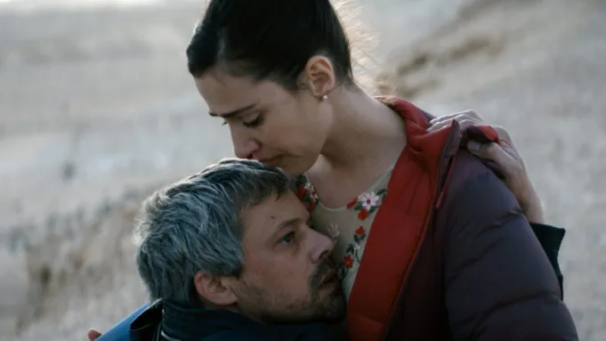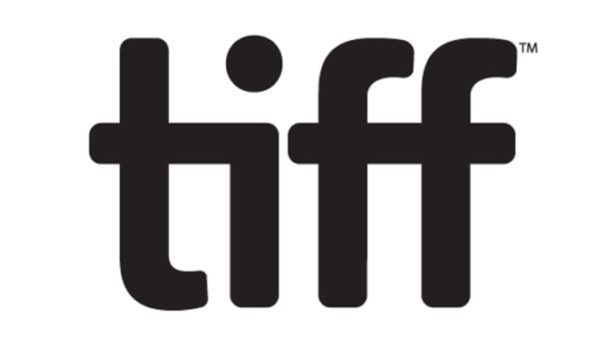
Films made about the Israeli Occupation of Palestine and the plight of the Palestinians are increasing in number. The BDS movement has gained steam. At a time when even saying something against the Israeli Zionist government is deemed anti-Semitic, it takes brave artists to make truthful films about the realities in the Middle East. And these passionate works of art come from not only Palestinian directors but Jewish Israeli filmmakers alike.
The Toronto International Film Festival presented several films with strong statements about Israel-Palestinian relations. Ahed’s Knee, a co-winner of the Jury Prize at Cannes, is a critique of contemporary Israeli society by Israeli director Nadav Lapid (Synonyms). The title refers to the young redheaded Palestinian woman, 16-year-old Ahed Tamimi, who back in November 2012 made history slapping and insulting an Israeli soldier and was immediately arrested and imprisoned. Right after that, an Israeli Knesset member made a shocking and hateful remark that “she should have gotten a bullet, at least in the knee.”

The story is centered around a rebel Israeli filmmaker, Y (an obvious alter-ego of Lapid), who defends Ahed’s actions and is in the process of making a film about her courageous act of defiance. While casting for the film he is invited to show one of his previous films in a small desert village where he is confronted by an overzealous government Cultural Minister who tries to seduce him before the screening, and his disgust for cultural apparatchiks is apparent. At one point he mentions there’s a ‘blacklisting’ going on in Israel against artists who support the Palestinians, and who don’t go along with government policy. He suggests the government is trying to control everything and feels it’s on its way down when it starts waging war on art—a new kind of blacklisting.
In one scene Y rants out a long soliloquy in the desert, an impassioned speech that rises in power above all else in the movie. He shows his disdain for Israelis whom he calls “wretched creatures who torment anyone different from them, and who are obsessed with their possessions. Any glimmer of light in them was extinguished by their schools, which commit crimes against their own students, which murder their spirit and exterminate their soul…whose morality is a complete fraud and to say otherwise would be a lie. It’s a Jewish nationalistic racist state. Their despicable laws prevent fresh air from penetrating people’s brains. And those rulers behind their nationalistic exhortations can easily tyrannize the population.”
Finally, after he screens his previous film, he asks the silent almost stupefied audience in frustration: “Does anyone have a question? Does anyone want to say anything? Is anybody thinking?” A bold challenge to the perpetrators of injustice. See the trailer here.
The feature debut of Jordanian filmmaker Darin J. Sallam, Farha, is another powerful and moving story, this one inspired by true events during the Nakba, the catastrophic expulsion of Palestinians from their native land in 1948.
Farha is the name of the young Palestinian woman whose life is drastically changed during the panicked forced evacuation of people from their homeland. “Farha” means joy but there is very little here. During the British turnover of power to the Israelis, kids throw stones at the English soldiers leaving the occupied area in trucks and tanks. Farha’s uncle tries to convince her father to let Farha have a good education in the big city where her best girlfriend lives. But Farha’s father, who is also the mayor of the small village, has a drastic solution on how to save his daughter when the rest of the villagers are forced to leave in a panic. Thinking for her safety, he leaves Farha behind, temporarily hidden in a large food cellar where no one would be able to find her. The story becomes claustrophobic as Farha has limited space and light in the bunker. The story then takes us through a series of unbelievable and tragic events that make the movie a powerful statement on the horrors of the Nakba. It’s beautifully filmed and directed by a rising star. The trailer can be viewed here.
Although Costa Brava, Lebanon isn’t technically from Palestine, it stars a great Palestinian actor, Saleh Bakri, son of the veteran actor/director Mohammed Bakri, who began his career in the iconic 1983 film Hannah K. It’s a fight or flee drama: either stay in Beirut, which is becoming a living hell or escape the harsh reality by fleeing to the countryside. The story is about a family that takes the second choice only to find more challenges in the mountains. Saleh Bakri is the father, famed Lebanese actress Nadine Labaki is the wife, living in an idyllic country house with two daughters and an elderly mother. The couple had met in a protest where she sang at the rally and he was injured by the police. Lebanese political realities are embedded in this engrossing, well-acted drama.
 A couple of other important films from Israel/Palestine were featured at the reduced-sized TIFF, one being Huda’s Salon, an important political thriller from Occupied Palestine, directed by Oscar winner Hany Abu-Assad (Paradise Now, Omar, The Idol), which had its world premiere at TIFF. Israeli director Ari Folman, famous for his award-winning animated drama Waltz With Bashir, has created another animated wonder with Where Is Anne Frank? taking a philosophical journey through the well-known story.
A couple of other important films from Israel/Palestine were featured at the reduced-sized TIFF, one being Huda’s Salon, an important political thriller from Occupied Palestine, directed by Oscar winner Hany Abu-Assad (Paradise Now, Omar, The Idol), which had its world premiere at TIFF. Israeli director Ari Folman, famous for his award-winning animated drama Waltz With Bashir, has created another animated wonder with Where Is Anne Frank? taking a philosophical journey through the well-known story.










